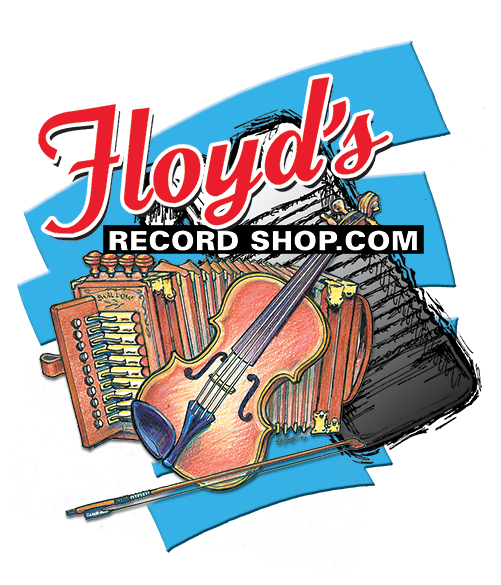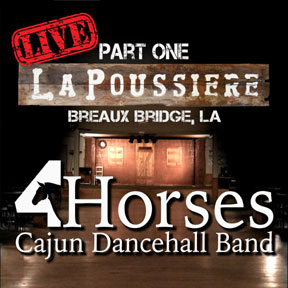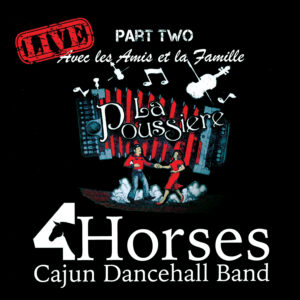4Horses
“Cajun Music Mavericks & Dancehall Dynamos”
Quick Intro
4Horses is a powerhouse Cajun band born from deep-rooted Louisiana traditions and fueled by modern dancehall energy. Featuring seasoned musicians who bring decades of experience across iconic Cajun acts, they blend authentic heritage with vibrant, foot-stomping rhythms that keep dance floors packed and hearts singing.
In-Depth Profile
4Horses embodies the heart and soul of Cajun music — steeped in tradition yet alive with fresh, dancehall energy. Each member brings a storied past from renowned bands, fusing decades of Cajun culture with contemporary flair. Their sound honors Louisiana’s musical roots while inviting new fans to join the party. From heartfelt ballads to raucous dance numbers, 4Horses delivers the authentic spirit of Cajun music with modern punch.
From Jamey Bearb’s expressive accordion — a skill passed down from his family’s lineage of legendary players — to Richard “T-Coe” Comeaux’s soulful pedal steel guitar, every note tells a story steeped in Louisiana’s cultural tapestry. Drummer Kevin Dugas and bassist Brazos Huval provide a tight, danceable rhythm section that commands the floor with infectious grooves and heartfelt authenticity.
Born out of the pandemic’s challenges, the 4Horses quickly grew from a casual jam into a dynamic supergroup, uniting the best of Cajun’s past and present. Their live performances at iconic venues like La Poussiere capture the unbreakable bond between musicians and community, making every show a celebration of life, heartache, and joy — all woven together by the unmistakable pulse of Cajun tradition.
Band Members & Musical Roles
-
Jamey Bearb – Accordion & Vocals
The Bearb family name is Cajun music royalty. Jamey, who first learned accordion from his dad Ricky Bearb, carries a rich legacy passed down through generations — from his great-grandfather Pierre to his grandfather Ernest. A sought-after accordionist, Jamey has lent his talents to legends like Rufus Thibodeaux and Vin Bruce. With 4Horses, he steps fully into the spotlight, recording beloved classics and brand-new songs, including one composed in honor of legendary Belton Richard. -
Kevin Dugas – Drums & Vocals
Son of Nolan and Geraldine Dugas, Kevin grew up steeped in Cajun sounds. His career highlights include 30+ years with Steve Riley and the Mamou Playboys, multiple Grammy nominations, and founding the supergroup High Performance. The pandemic opened a new chapter with 4Horses, where he keeps the beat driving with his dancehall-inspired rhythms. When not on stage, he’s a hands-on pro at PeeWee’s Paint and Body Shop. -
Richard “T-Coe” Comeaux – Pedal Steel & Guitar
Inspired by his father Camille Louis Comeaux Jr., T-Coe grew up playing traditional Cajun music before mastering the pedal steel. Influenced by Milton Guilbeau, he brings soulful melodies and authentic Cajun roots to every note. His Nashville recording stint with River Road in the ‘90s marked a high point, but his heart remains with the Cajun sound and his bandmates in 4Horses. -
Brazos Huval – Saxophone, Bass & Multi-Instrumentalist
A Breaux Bridge native, Brazos is a multi-talented musician and educator who’s been spreading Cajun music worldwide for decades. Touring for 18 years and earning three Grammy nods, his proudest achievement is nurturing the next generation through his acclaimed music school, recognized twice as Times of Acadiana’s Best Music School.
Notable Accomplishments & Awards
-
Kevin Dugas: 4-time Grammy nominee with Steve Riley and the Mamou Playboys
-
Brazos Huval: 3-time Grammy nominee; founder of a twice award-winning music school
-
Jamey Bearb: Collaborated with Cajun music legends and honored for contributions to preserving the Cajun sound
-
Recognized by the Cajun and Creole community for musical excellence and dedication to heritage preservation
Bonus Notes
-
4Horses formed during the COVID-19 pandemic as a fresh collaboration of seasoned Cajun musicians
-
Jamey Bearb’s recent work includes composing original songs in memory of Cajun icons Randy Falcon and Yvonne Bart
-
Kevin Dugas balances a full-time day job with an active performing career, embodying the hardworking spirit of Cajun artists
-
Brazos Huval’s music school has taught over 1,000 students and continues to be a beacon of Cajun music education
Album Reviews
4Horses: Live at La Poussiere – Part Two
OffBeat Magazine, written by Dennis Rozanski (August 2024)
“A high-octane Cajun night captured in full swing—accordion-driven, pedal steel-soaked, and dust-kicking from start to finish”
Never is Saturday night wasted inside the hallowed south Louisiana walls of La Poussiere, stretched out along Grand Point Highway in Breaux Bridge. Since 1955, authentic Cajun music has been guiding people around the 69-year-old dancefloor that traverses the length of the authentic Cajun dancehall like an airport runway.
Such was the case in early June of 2022, when 4Horses sweated the humid evening all the more so. From the first punch of frontman Jamey Bearb’s accordion into “Merry Maker,” the hallowed Little Cathedral of Cajun Music comes alive. The iced beer is flowing. The ceiling fans, whirring. The tables lining the perimeter hosts the usual sea of activity, serving as a sort of staging area as couples continually come and go on their way to stake out their share of property on the hardwood. And like a thousand Saturday nights before, the dust again flies.
And you’re part of it. Live at La Poussiere: Part Two captures that milieu: the bandstand introduction by club owner Lawrence Patin, the band talking in between numbers, the crowd going wild. Most importantly, you are centerstage as 4Horses show why recently pooling their experience was brilliant. Led by Bearb’s rampaging accordion and vocals, Richard “T-Coe” Comeaux’s pedal steel guitar shoots geysers of liquid silver up high above ecstatic songs, saving all the metallic teardrops to pour down into the crevices of the weepers. Drummer Kevin Dugas constantly whips along the beat. And everything gets shoved along by Brazos Huval’s do-as-I-say basslines.
Like Part One, this second-half of the same evening illuminates 4Horses’ power to swing the blues by the tail to full effect in excellent sound. No, not even “The Sounds of Loneliness” can sink spirits, being no match for their lively spins on life’s downsides. The steel guitar, deploying its sweeping spectrum of microtonal glides, vocalizes the entirety of “Crying in the Chapel.” And gorgeously so. Still, you hear the uproar—and feel the exhilaration—kick into overdrive when the accordion steals back “Hicks Wagon Wheel Special.” In keeping with the disposition, “Give Me Another Chance” and “I Don’t Want You Back”—flipside pages out of the late, great Belton Richard’s songbook—offer Cajun-French tipoffs that love is risky business.
Regardless of heartache status, the setlist operates on a danceable cycle of attack and release, alternating punch-it-up two-steps with cool-it-down waltzes. That way, the tilt-a-whirl “One Scotch, One Bourbon, One Beer” flings dancers apart, only to have “Nobody Wants Me” then rivet them back together.
Either way, standing still is not an option. Not inside that little patch of Cajun heaven-on-earth called La Poussiere. Nor anywhere within earshot of 4Horses.
4Horses: Live at La Poussiere – Part One
OffBeat.com, written by Dan Willging (May 2023)
“From garage jams to dancehall magic, 4Horses gallops into Cajun glory—steel-driven, accordion-fired, and steeped in legacy.”
4Horses was spawned from Cajun supergroup High Performance when steel guitarist Richard Comeaux had difficulty booking a gig and his usual suspects were unavailable. So, Comeaux and his High Performance bandmates Jamie Bearb and Kevin Dugas, plus a substitute bassist, played the one-off gig as a quartet. Bearb, normally a fiddler, resurrected his first instrument, the accordion, and the experience, says Comeaux, was “magical.” The group opted to continue with High Performance bassist Brazos Huval. During the pandemic, 4Horses became tighter, thanks to regular gigs at Comeaux’s garage attended by friends and neighbors who were spread out across the long driveway.
Just as High Performance’s first two albums were live recordings captured at Breaux Bridge dancehall La Poussiere, 4Horses did the same with its debut. Engineer Scott Ardoin draped the stage with microphones, the band promoted heavily, and from the sound of it, it was a full house. A flock of zealous female fans screams whenever 4Horses kicks off a tune or shifts into an energy-thrusting key modulation. The back story is that although these screams are quite prominent, Ardoin eliminated a considerable amount of crowd noise that was sometimes deafening.
4Horses’ sans-fiddle format opens the door for Comeaux to showcase his extraordinary steel skills. He drones the bass notes, keeps the rhythm jukin’ on the lively ones, and plays riveting, expressive solos on the waltzes and even chimes. On the throttling instrumental “Acadian Two Step,” Comeaux plays increasingly growling slides that keep pace with Bearb’s bustin’ accordion pumping. Though 4Horses gives Comeaux plenty of opportunity to shine, on “Choo Choo Ch’Boogie,” he has the whole pool to himself for a jaw-dropping clinic. His technique is so incredible one has to wonder how all these sounds can emanate from a single instrument. Comeaux differs from other Cajun steelers in that he doesn’t play the more limited open-G tuning but E9, where he has access to every note.
The only song overlapping with High Performance’s recorded output is the rousing “That’s What Makes the Cajuns Dance.” For Bearb, it has deep familial roots. His father, Ricky, co-wrote it with bassist Matt Comeaux and cut it as Ricky Bearb and the Cajun Ramblers Five in 1978. Here, Bearb 2.0 reprises it on the same accordion his father used and plays in his style—different than Steve Riley’s version—with High Performance.
Also similar to High Performance is 4Horses’ reverence for the iconic Belton Richard. Many of these tracks can be attributed to him, either originals or covers culled from his vast repertoire, including “My Last Love,” which makes its recorded debut here. He had written the lyrics on paper but hadn’t finished the melody, so Richard’s widow Brenella asked Bearb if he could complete it. If Bearb had declined, it would have been left undone, as she never intended to offer it to anyone else. Bearb crafted a stirring melody to match the tune’s tenderness, and 4Horses cut it at Travis Matte’s studio for the only studio track of the otherwise live album, with Bearb alternating between accordion and fiddle. This alone is worth the price of admission, but it’s a bargain at any price.
4Horses: Live at La Poussiere – Part One
Paste Magazine, written by Geoffrey Himes (April 2023)
“Where Cajun meets country in a dust-kicking dancehall revival—accordion, pedal steel, and baritone vocals driving the heartbeat of Acadiana.”
New Orleans R&B is not the only indigenous local music that puts the “Heritage” into the New Orleans Jazz & Heritage Festival. Cajun music from southwest Louisiana’s Acadiana region has proven equally valuable. Built around the accordion, fiddle and washboard, this tradition began with French immigrants who put a Franco-Celtic spin on every music they encountered, whether blues, rock ‘n’ roll or country. A good example of country-leaning Cajun music is the new album Live at La Poussiere by the 4Horses Cajun Dancehall Band.
This quartet features accordionist/lead singer Jamey Bearb and three veterans of Steve Riley’s bands—drummer Kevin Dugas and bassist Brazos Huval from the Mamou Playboys and steel guitarist Richard Comeaux from Lil’ Band o’ Gold. Recorded live at the ancient Breaux Bridge dancehall, named La Poussiere after the dust the waltzers stir up, the recording features both songs by such Cajun legends as Belton Richard and Lawrence Walker and by such country-music figures as George Jones and Lefty Frizzell.
The two sources complement each other surprisingly well, for the Louisiana syncopation gives a new perkiness to the country standards, which in turn lend an emotional urgency to the swamp-pop rhythms. Bearb’s baritone is big and persuasive, whether singing in French or English, and his accordion pulses with the pedal steel to keep the dance floor filled all night. And that’s the primary objective of nearly every working band in Louisiana.


